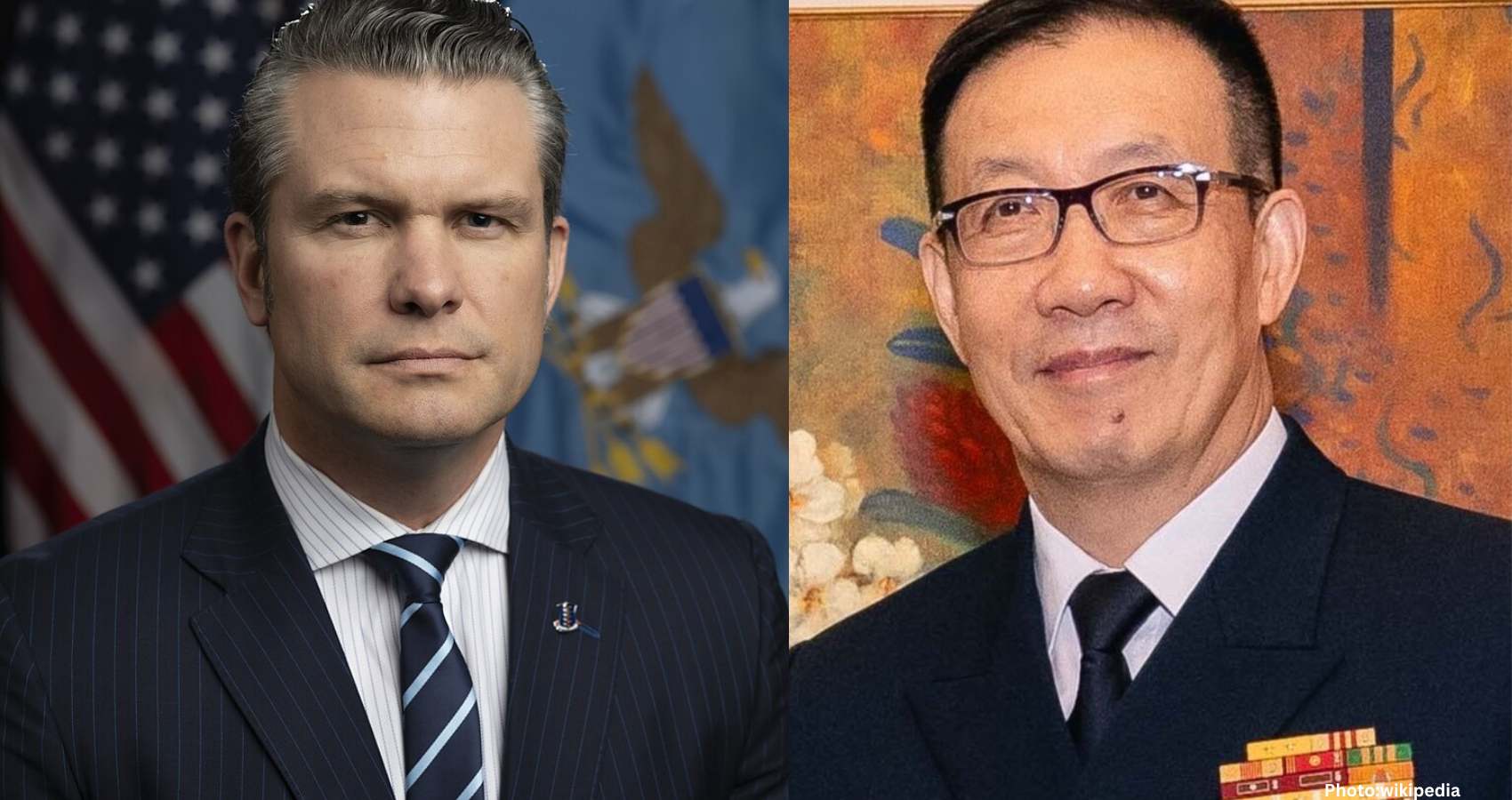The United States and China have agreed to establish direct military communication channels to mitigate tensions following a meeting between U.S. Secretary of War Pete Hegseth and Chinese defense chief Admiral Dong Jun.
U.S. Secretary of War Pete Hegseth described his recent discussions with China’s Minister of National Defense, Admiral Dong Jun, as “positive,” highlighting a mutual agreement to open military channels aimed at easing tensions between the two nations.
Following a meeting between President Donald Trump and Chinese President Xi Jinping, Hegseth announced plans to establish military-to-military communications to “deconflict and deescalate” potential issues. In a post on X, he emphasized the importance of peace, stability, and good relations between the U.S. and China.
“Admiral Dong and I also agreed that we should set up military-to-military channels to deconflict and deescalate any problems that arise. We have more meetings on that coming soon. God bless both China and the USA!” Hegseth wrote.
Earlier on the same day, Hegseth participated in a meeting in Malaysia with defense leaders from the Association of Southeast Asian Nations (ASEAN). During this meeting, he urged ASEAN members to counter China’s aggressive actions in the South China Sea.
“China’s sweeping territorial and maritime claims in the South China Sea fly in the face of their commitments to resolve disputes peacefully,” he stated, according to reports from The Associated Press. “We seek peace. We do not seek conflict. But we must ensure that China is not seeking to dominate you or anybody else,” he added.
The South China Sea remains a contentious area, with overlapping territorial claims from China, the Philippines, Vietnam, Malaysia, and Brunei. Tensions have escalated as China’s maritime fleet has clashed with the Philippines in these disputed waters. Recently, Chinese officials labeled the Philippines a “troublemaker” for conducting naval and air drills in collaboration with the United States, Australia, and New Zealand.
During the ASEAN meeting, Hegseth defended the Philippines against China’s claims, particularly regarding the Scarborough Shoal, which was seized from the Philippines in 2012. He criticized Beijing’s designation of the area as a “nature reserve,” calling it “yet another attempt to coerce new and expanded territorial and maritime claims at your expense.”
Hegseth encouraged ASEAN members to finalize a Code of Conduct with China and proposed the creation of a “shared maritime domain awareness” network. He also suggested implementing rapid-response systems to deter provocations, ensuring that any member facing “aggression and provocation is not alone.”
In addition, he welcomed plans for an ASEAN-U.S. maritime exercise scheduled for December, aimed at enhancing coordination and safeguarding freedom of navigation in the region.
As the U.S. and China work to establish direct military communication channels, the focus remains on maintaining stability and preventing conflicts in the increasingly volatile South China Sea.
Source: Original article

